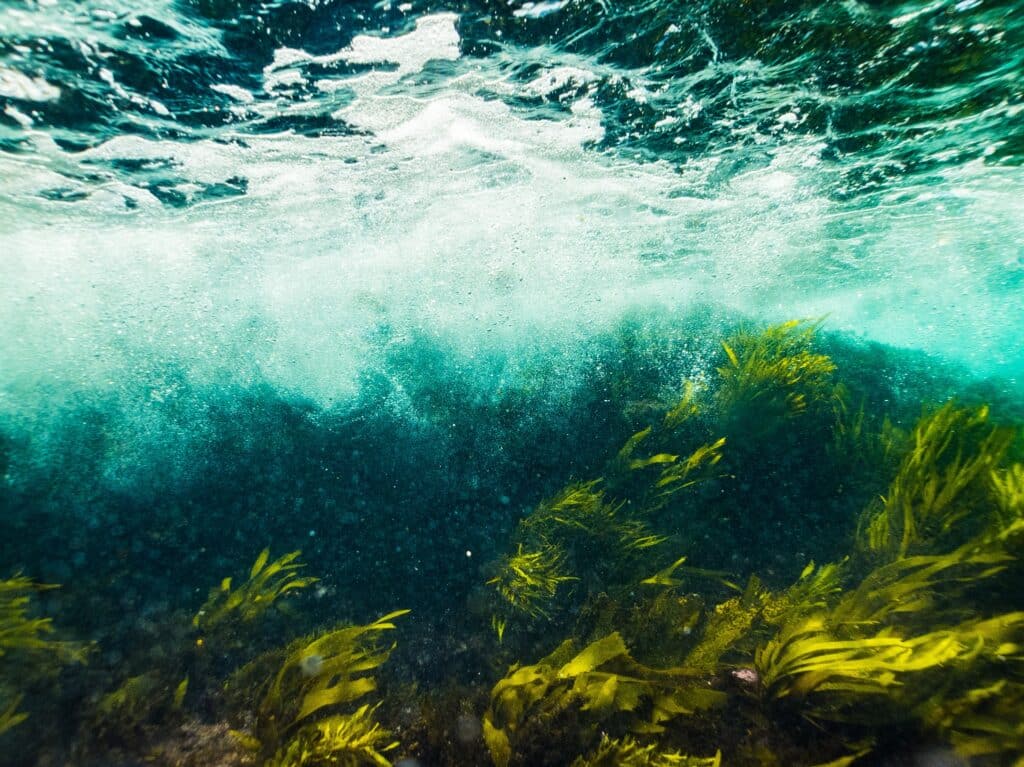Human beings have always had a relationship with the seas, so it’s not surprising that marine ecosystems harbour medicinal and therapeutic factors that can be beneficial to us. Seaweeds are an excellent example of one such source of therapeutics that has been getting some attention from researchers.
As a group, the various seaweeds (aka marine algae) that have been studied, have shown great potential for supporting immune health, reducing inflammation, supporting gut health, being anti-cancer, supporting diabetes and cardiovascular health, and fighting viruses. Even as a food source, many coastal cultures have long consumed seaweeds in their diets for their richness in protein, minerals, and complex carbohydrates.
What makes marine algae so special?
Marine algae and seaweeds contain several different compounds that appear to have therapeutic potential. Of particular interest to us are a group of compounds called polysaccharides. These are complex branched molecular chains that have the ability to physically interact with various immune factors in the body to exert their benefits. They can increase the activity of specialized immune cells, or interfere with the ability of a virus to attach and penetrate cells. One of the most promising polysaccharides is a sulfated polysaccharide called Fucoidan.
What does Fucoidan do?
Quite a bit of research has focused on the various actions of Fucoidan. It can be found in several species of seaweeds, such as Undaria pinnatifida (Wakame), and Laminaria japonica (Kombu).
As an anti-cancer compound, Fucoidan has been found to prevent tumor growth and mediate some of the effects of chemotherapy. It can also stimulate the immune system to attack tumors, as well as viruses. It is a potent antioxidant that is able to prevent damage to cells, and keep excess inflammation from doing the same as an anti-inflammatory. Additionally, it can support the body against metabolic problems by acting as a blood thinner and helping correct high cholesterol.
Can Fucoidan help with herpes and cold sores?
The virus that causes genital herpes and cold sores is called the Herpes Simplex virus (HSV), and it’s a highly transmissible and very common infection globally. Antiviral medications exist to treat HSV, but there is concern about resistance and side effects. Thus far the research data has been very supportive of the antiherpetic potential of Fucoidan for cold sores and HSV. In controlled laboratory and animal studies, brown seaweed Fucoidans have been shown to prevent HSV from infecting cells, directly interfere with the virus (virucidal), and also prevent viral replication.
Is Fucoidan safe to use?
Seaweeds that contain naturally-occuring Fucoidan are safe to eat, and are a common part of many culture’s diets, especially in Asia. According to the data available, there are no safety concerns when it comes to extracted Fucoidan. Some minor side effects are possible, such as nausea, but these are uncommon. As always we recommend that you speak to a qualified health care practitioner before starting any new medicinal supplements.
References
https://www.ncbi.nlm.nih.gov/pmc/articles/PMC6551690/
https://www.mdpi.com/1660-3397/17/3/183
https://www.jstage.jst.go.jp/article/cpb/52/9/52_9_1091/_pdf
https://pubmed.ncbi.nlm.nih.gov/31826428/





